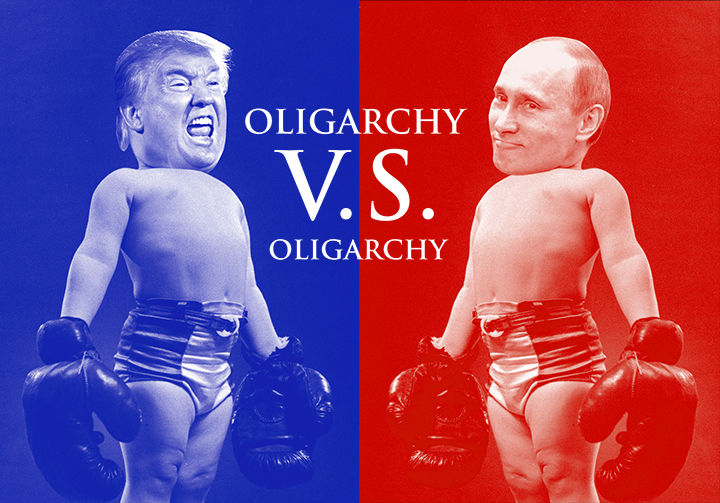
I'll guess you already read about or saw a TV clip about all the hundreds of congressional staffers who issued a previously unheard of public appeal to members of the Senate-- including their bosses-- to vote to convict Trump on the House impeachment charges. As well as the unpardonable sin of overturning the American concept of the peaceful transition of power-- for which Trump should have been summarily executed-- for them, Trump and his allies had incited a violent and murderous mob to attack their workplace. An excerpt:

But there were more subtle ways Trump damaged our country as well, reasons the Russians and others who wish this country ill were so enthusiastic about seeing Trump in the White House. Yesterday I saw a disturbing report from Bloomberg News about how the U.S. has fallen out of the top 10 nations in terms of innovation. This is the list with rankings from 2020 ---> 2021:
1- Germany ---> 4
2- South Korea ---> 1
3- Singapore ---> 2
4- Switzerland ---> 3
5- Sweden ---> 5
6- Israel ---> 7
7- Finland ---> 8
8- Denmark ---> 6
9- U.S. ---> 11
10- France ---> 13
New to the top ten:
Netherlands: 13 ---> 9
Austria: 11 ---> 10
5 other countries of great interest:
12- Japan ---> 12
15- China ---> 16
18- U.K. ---> 18
22- Canada ---> 21
26- Russia ---> 24
This index, reported Bloomberg "analyzes dozens of criteria using seven equally weighted metrics, including research and development spending, manufacturing capability and concentration of high-tech public companies. The 2021 rankings reflect a world where the fight against Covid-19 has brought innovation to the fore-- from government efforts to contain the pandemic, to the digital infrastructure that’s allowed economies to work through it, and the race to develop vaccines that can end it. 'In the year of Covid and facing the urgency of climate change, the importance of innovation fundamentals only increases,' said Catherine Mann, global chief economist at Citigroup Inc. 'Innovation is often measured by new ideas, new products and new services,' she said, but it’s their 'diffusion and adoption' that is the real metric of success." The U.S. was obviously hampered by a self-serving president with no affinity towards either science or public service.
Korea’s return to the top spot is mainly due to an increase in patent activity, where it ranks top, alongside a strong performance in R&D and manufacturing.
There’s near-total agreement in South Korea that “R&D is essential to have a future,” said Lee Kyung-mook, a professor of business management at Seoul National University. “It’s sandwiched between more developed nations, which still outperform them in technology, and China that is catching up fast relying on lower labor costs.”
Second-placed Singapore, which has been allocating budget funds to help workers and companies transition to a digital economy, also scores high for manufacturing-- and its globally competitive universities put it top of the tertiary education gauge. Switzerland, a leader in financial and biological technology, ranks near the top in both of the index’s research categories.
Germany’s loss of the crown follows a warning two years ago by Juergen Michels, chief economist of Bayerische Landesbank, who said the country lacked skilled workers and a proper strategy for next-generation technology.
As the two biggest economies, the U.S. and China account for much of the world’s innovation, and they’re also locked in a battle over key areas of policy like intellectual property rights. The gap between them has steadily declined over the liftetime of the index. This year, both saw their rankings decline.

The U.S., which topped the first Bloomberg Innovation Index in 2013, dropped two places to 11th. In a report last year, the National Science Board found that “where once the U.S. was the uncontested leader in science and engineering, we are now playing a less dominant role.”
The country scores badly in higher education, even though U.S. universities are world-famous. That underperformance was likely made worse by obstacles to foreign students, who are usually prominent in science and technology classes-- first due to the Trump administration’s visa policies, and later to the pandemic.
New President Joe Biden ran on a promise to reinvigorate U.S. manufacturing with a $300 billion investment in R&D and breakthrough technologies, a policy he labeled “Innovate in America.”
Sung Won Sohn, an economist at Loyola Marymount University in Los Angeles, says the U.S. is still in the vanguard-- but nowadays its innovations tend to come from smaller companies, and take longer to reach the consumer. “There are a lot of new ideas from many start-ups,” he said. “It will take time for the ideas to be translated into marketable products.”
And don't be so certain that Americans aren't aware of what's going on around them. They sense they and their families are being brutally squeezed by a voracious transpartisan establishment battling ceaselessly to maintain the status quo.



If a company or a college does research on stuff, but most of that is either done overseas (by subsidiaries) or by foreign workers/researchers... which nation gets the credit for the innovation?
In my field of study, I was the only non-chinese national (I'm lumping taiwanese with mainlanders here since I have no clue which were which) to get a degree in my year from my university. If we all worked for a US company like Apple or whatever and we each "innovated" the same amount... which nation/shithole gets the credit in this measurement?
Not invalidating the premise. In fact, I'm asking to see if the us/US number is artificially inflated. Because In the last 20+ years of my caree…